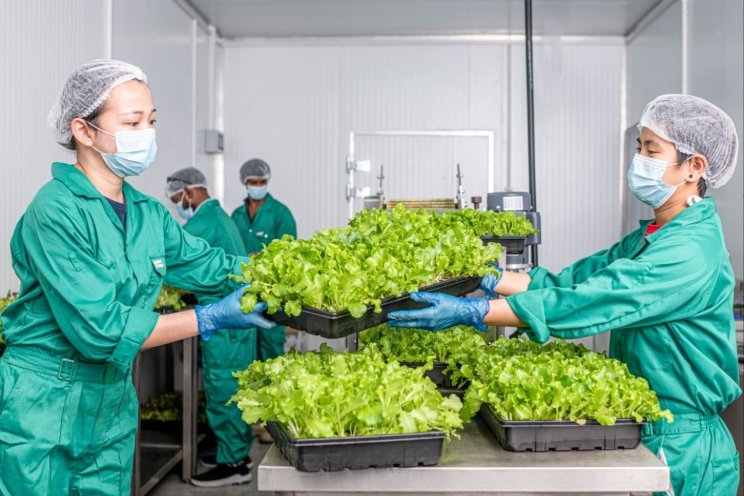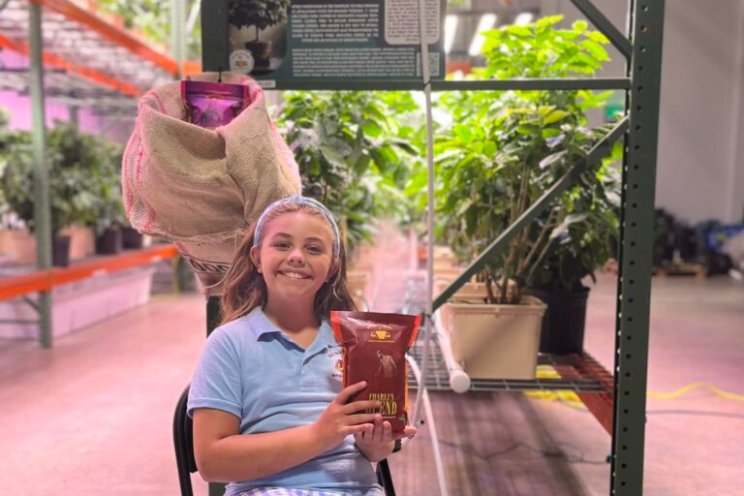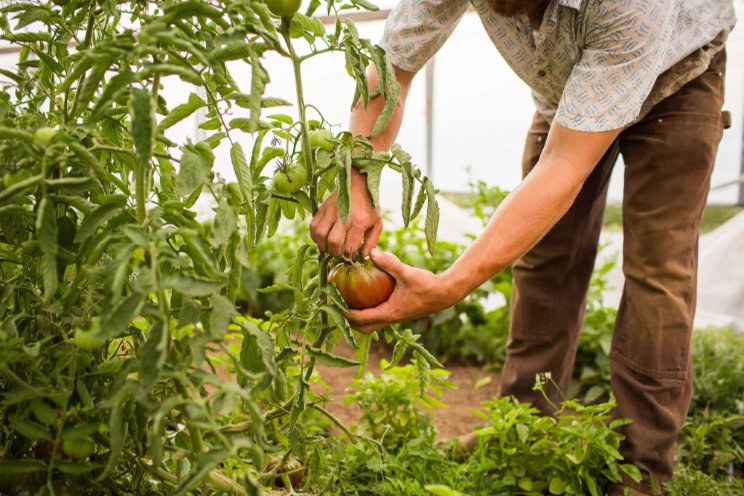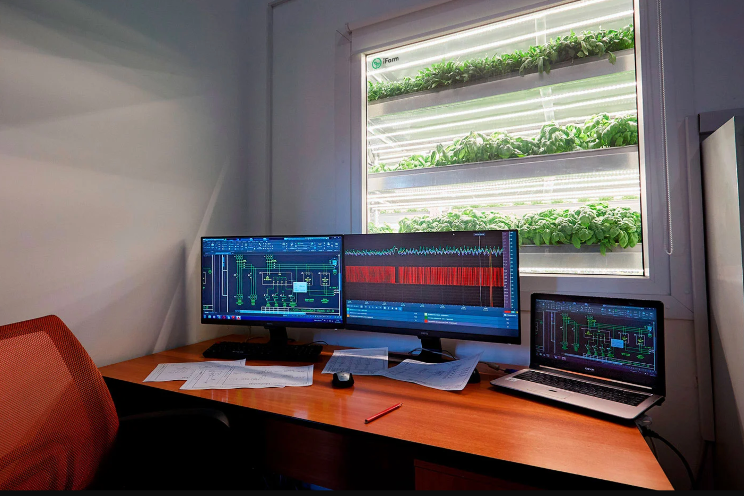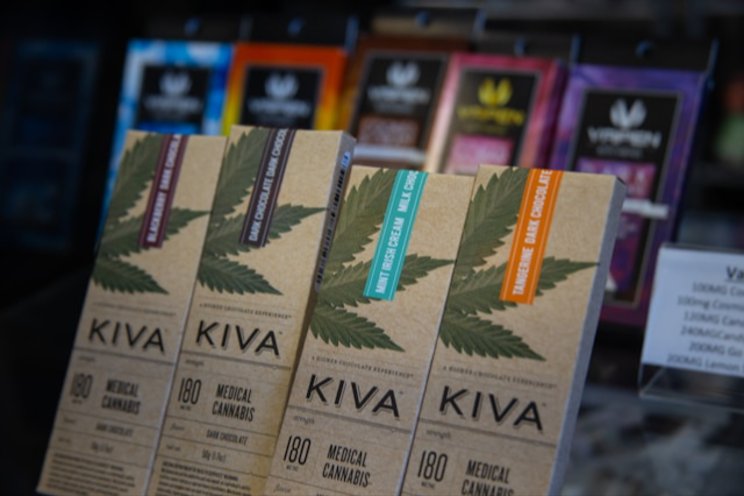Greenhouses enabling hurricane-resilient farming in Puerto Rico
Added on 08 November 2021

Such is the picture painted by Jennifer Morrow in the days following Hurricane Maria.
Over 85% of food consumed in Puerto Rico is imported.
As the deadliest U.S.-based natural disaster in 100 years, Hurricane Maria destroyed an estimated 80% of this US territory's crops and farmland. At its worst, after Maria, the island was importing 95% of its food.
Even though major hurricanes like Maria occur once every 20 years, Jennifer Morrow, Founder at Growing PR, shares that food insecurity at the hands of these natural disasters is an annually recurring problem. "We still have hurricanes and tropical storms that pass by all summer long. Every year, farmers cut back on seeding to reduce the risk of crop loss." And, because "85% of the food consumed on the island is imported," even one storm can leave locals without fresh produce because "produce is delayed in transit."
According to Bread for the World, Puerto Ricans are four times more likely than mainlanders to experience food insecurity. This means that they have less access to healthy foods that help them meet basic nutrition needs.
A global pandemic and back-to-back natural disasters devastated Puerto Rico. In its wake, the farming revolution has become more urgent.
By combining regenerative agriculture with hydroponic greenhouses on their 13 acres of land, Growing PR is taking on the challenge of "producing fresh, clean, local, healthy fruits and vegetables consistently for the Puerto Rican population."
With the goal of making the best of both outdoor and indoor agriculture to "produce a greater diversity of crops and deliver more nutrition to people," the Growing PR team partnered with Sprung Structures.
As a technologist with over 25 years of experience, Founder, Roger Post, shares that "few structures on the island were able to make it through Hurricane Maria. Most had their roofs ripped off." With a performance architectural membrane designed to provide maximum longevity and all-weather durability, Sprung's greenhouse designs enable this climatically vulnerable location to produce high-value crops even throughout the hurricane season.
The greenhouses will allow the team to optimize the use of natural sunlight and eliminate expensive air conditioning needs, whilst still protecting crops from Puerto Rico's frequent rain, heat, and pest concerns. "These greenhouses, combined with our hydroponics system, maintain an ambient temperature for the production of traditionally cool-weather crops."
Through these means, the Growing PR team is bringing "the best of the controlled environment agriculture to the Caribbean tropics."
The team will use "automation, data-driven decision support tools, and smart farming to reduce effort and improve yield." Morrow shares that "by embracing technology and adding just a little bit to the farm - some sensors and some automation - we can make the overall quality of the food better, and we can pay a higher wage to our employees."
The benefits for the crops themselves are numerous. With basic harvest, nutrition, and environmental data, the team can analyze how to improve processes, and increase both operational productivity and crop yield.
Additionally, as the island has major electrical distribution disruptions, the team will rely on agro-voltaics to help power their farm. Post shares that "we'll start slow by powering our well and pump, and then build a bit more and start powering the fans in the greenhouses."
"We want to be self-sufficient within our own borders. We live on an island, we have finite resources. We have to do things sustainably, because the things that we need might not come tomorrow."
The benefit of integrating outdoor food production into the equation is greater self-sufficiency for the farm. "Anything that would traditionally be a waste product from the greenhouses - the root mass, the trim mass, the compostable grow media - feeds into the soil."
This plays into how the team thinks about their community. "At the end of the day, part of our food sovereignty depends on either growing ourselves or buying from local producers. If we need certain inputs like fertilizer or compost and we're not making it ourselves, we need to be partnering with local businesses to bring us those resources. We want to look local first."
After noticing that consumers wanted more local produce than the team was able to supply, Growing PR organized and started the Palmas Farmers Market at the Wyndham Palmas hotel. "It's an opportunity for us to connect with other farmers and agricultural producers, and bring them into this community where there is a high demand for local produce" - fruits, vegetables, microgreens, plant-based milks, meat, honey, cheese, baked goods, kombucha and other fermented products, and even ice cream. "It's allowing us to build an alliance of producers, farmers, and ranchers on the island, to see how we can help each other and better overall food production on the island."
Additionally, to better support their community through hurricanes, the Growing PR team intends to adapt their greenhouse to be used during disasters. "Since the greenhouses need to run all the time, if the power goes out during a disaster, we can use generators to provide internet and electricity to those who need it," says Post. "People can come to charge their phones, get food from our greenhouse, and talk to their neighbors. We can create a value addition beyond just farming."
Growing PR is offering impact investors an opportunity to help solve this problem.
Read more on Agritecture.
Editor's Note: This blog post is in partnership with Growing Puerto Rico. It includes information derived from an interview Agritecture conducted with Growing PR's Founders Roger Post and Jennifer Morrow.
Photo created by wirestock - www.freepik.com
Source: Agritecture
More news

